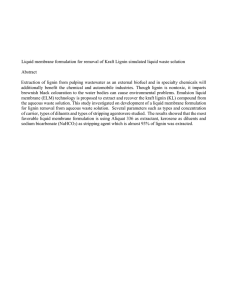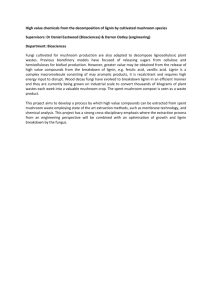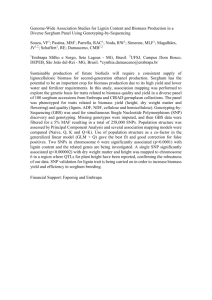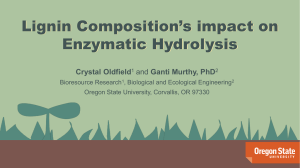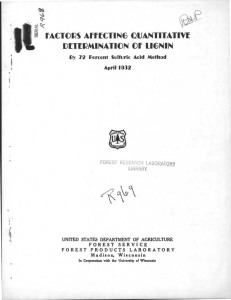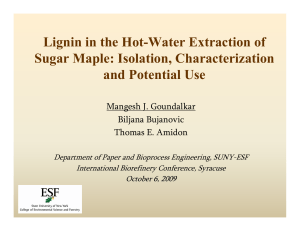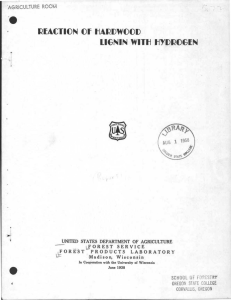Tailoring Plant Cell Wall Composition and Structure ABSTRACT
advertisement
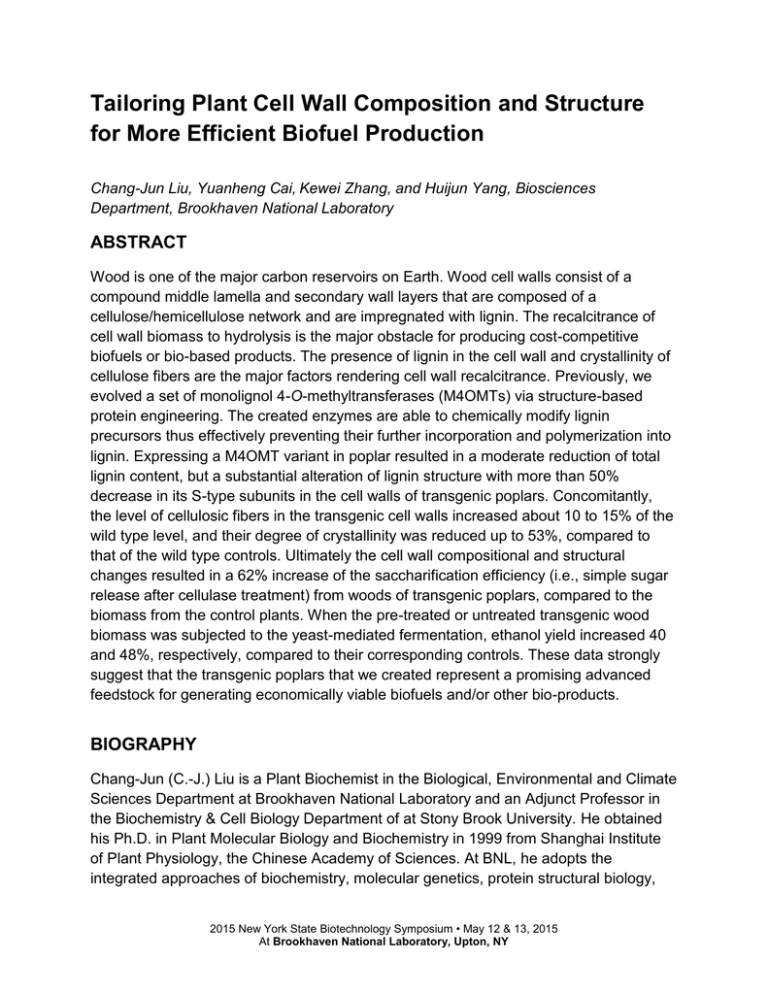
Tailoring Plant Cell Wall Composition and Structure for More Efficient Biofuel Production Chang-Jun Liu, Yuanheng Cai, Kewei Zhang, and Huijun Yang, Biosciences Department, Brookhaven National Laboratory ABSTRACT Wood is one of the major carbon reservoirs on Earth. Wood cell walls consist of a compound middle lamella and secondary wall layers that are composed of a cellulose/hemicellulose network and are impregnated with lignin. The recalcitrance of cell wall biomass to hydrolysis is the major obstacle for producing cost-competitive biofuels or bio-based products. The presence of lignin in the cell wall and crystallinity of cellulose fibers are the major factors rendering cell wall recalcitrance. Previously, we evolved a set of monolignol 4-O-methyltransferases (M4OMTs) via structure-based protein engineering. The created enzymes are able to chemically modify lignin precursors thus effectively preventing their further incorporation and polymerization into lignin. Expressing a M4OMT variant in poplar resulted in a moderate reduction of total lignin content, but a substantial alteration of lignin structure with more than 50% decrease in its S-type subunits in the cell walls of transgenic poplars. Concomitantly, the level of cellulosic fibers in the transgenic cell walls increased about 10 to 15% of the wild type level, and their degree of crystallinity was reduced up to 53%, compared to that of the wild type controls. Ultimately the cell wall compositional and structural changes resulted in a 62% increase of the saccharification efficiency (i.e., simple sugar release after cellulase treatment) from woods of transgenic poplars, compared to the biomass from the control plants. When the pre-treated or untreated transgenic wood biomass was subjected to the yeast-mediated fermentation, ethanol yield increased 40 and 48%, respectively, compared to their corresponding controls. These data strongly suggest that the transgenic poplars that we created represent a promising advanced feedstock for generating economically viable biofuels and/or other bio-products. BIOGRAPHY Chang-Jun (C.-J.) Liu is a Plant Biochemist in the Biological, Environmental and Climate Sciences Department at Brookhaven National Laboratory and an Adjunct Professor in the Biochemistry & Cell Biology Department of at Stony Brook University. He obtained his Ph.D. in Plant Molecular Biology and Biochemistry in 1999 from Shanghai Institute of Plant Physiology, the Chinese Academy of Sciences. At BNL, he adopts the integrated approaches of biochemistry, molecular genetics, protein structural biology, 2015 New York State Biotechnology Symposium • May 12 & 13, 2015 At Brookhaven National Laboratory, Upton, NY and protein engineering approaches to elucidate the biosynthesis and metabolic regulation of plant (poly)phenolics, and the plant cell wall biogenesis. He has published 50 peer-reviewed papers and obtained four issued US patents. Chang-Jun Liu is a member of the Biochemistry and Structural Biology Graduate Program, Stony Brook University, and an overseas member of International Collaborative Research Initiative for Plant Metabolism, the Chinese Academy of Sciences. He is currently a ReviewEditor of the journal of Frontiers in Plant Metabolism and Chemodiversity. 2015 New York State Biotechnology Symposium • May 12 & 13, 2015 At Brookhaven National Laboratory, Upton, NY

